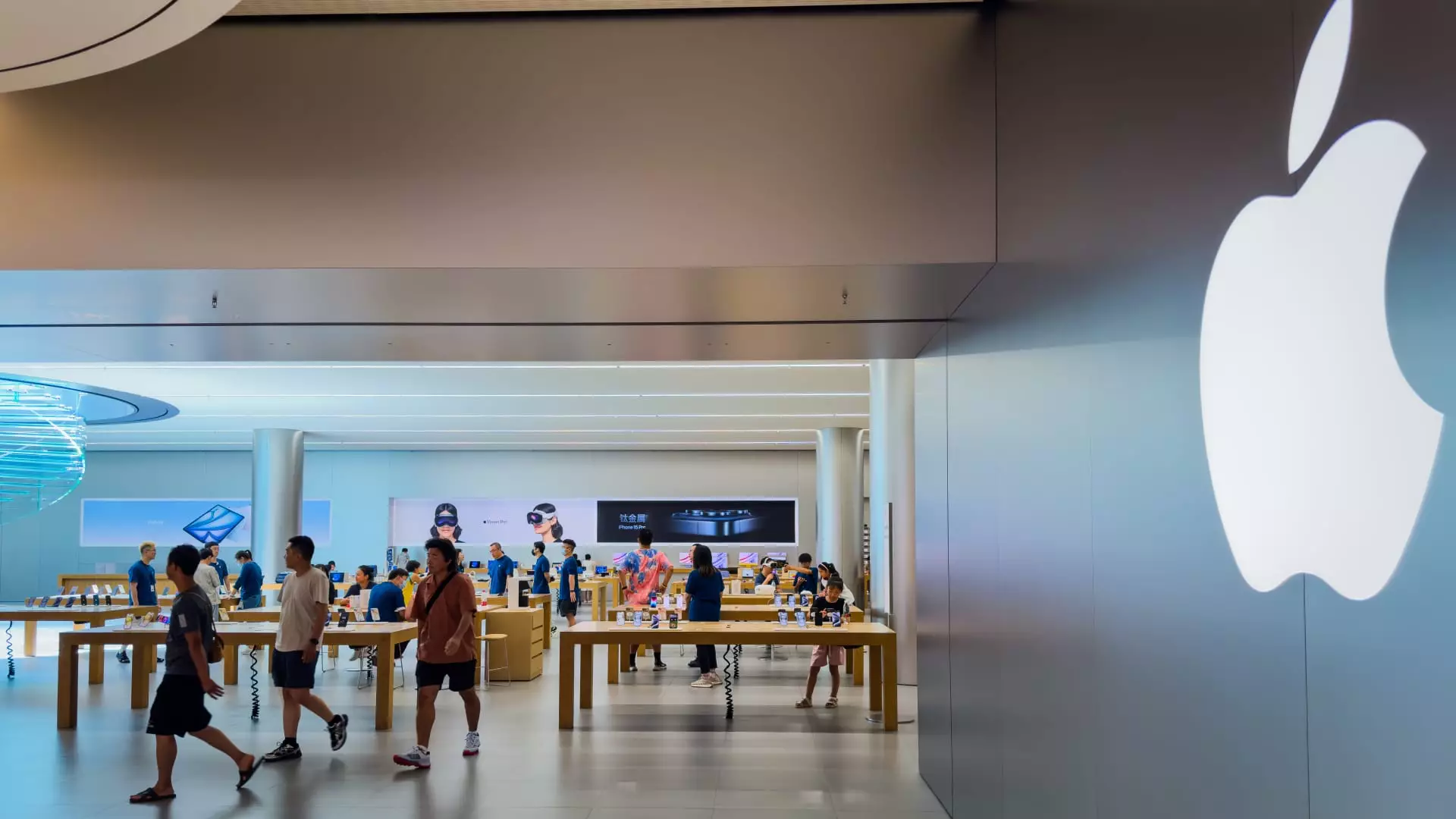In the ever-evolving tech industry, the potential imposition of tariffs by the Trump administration raises significant concerns about the impact on companies reliant on international manufacturing. While the prospect of a 10% to 20% universal tariff on imported goods looms, analysts suggest that Apple could navigate this storm better than many of its peers. The complexities of gross profit margins, manufacturing strategies, and market perceptions paint a multifaceted picture of how Apple stands to fare amidst trade tensions.
Apple is often viewed as the quintessential technology company, heavily leveraging Chinese manufacturing for its products, from iPhones to iMacs. However, analysts express varied opinions regarding the financial ramifications of the proposed tariffs. Morgan Stanley’s Erik Woodring notes that Apple’s high gross profit margins provide some insulation against the potential negative effects of tariffs. While Apple may seem vulnerable due to its dependence on Chinese manufacturing, its robust margins could limit the extent of adverse impacts on earnings per share (EPS).
Despite this relative advantage, Apple’s stock performance post-election has not matched the excitement seen with other tech companies. For instance, competitors like Tesla have seen stock prices soar following the election, while Apple has remained relatively stagnant. This underperformance can be attributed to broader market trends and Apple’s own struggles against a backdrop of heightened scrutiny and competition.
The Potential Financial Impact of Tariffs
Should tariffs be enacted without exemptions for Apple, Morgan Stanley projects a possible EPS decline of 5.5% under a 15% tariff on U.S. imports from China. With a higher tariff of 25%, the decline could reach 9.2%. Analysts emphasize that while these projections are concerning, Apple’s high margins may mitigate the extent of any financial damage. Comparatively, other companies, like Dell, could face devastating losses, illustrating the disparity in risk affiliated with tariff implementation.
CFRA Research’s Angelo Zino articulates a cautious perspective, acknowledging that tariffs would inevitably erode Apple’s earnings, whether through decreased demand or diminished profit margins resulting from increased costs. Nevertheless, Zino believes the company’s strong pricing power positions it better than many competitors in the tech sector.
Despite the potential hurdles presented by tariffs, various analysts express a shared sentiment that Apple’s problems may be less acute than feared. Bank of America’s Wamsi Mohan categorizes the anticipated effects of tariffs as “manageable,” predicting an approximate 4% EPS hit under a 60% tariff scenario, provided Apple refrains from inflating prices. This perspective reiterates the notion that single-digit declines are far less troubling compared to projections for other tech firms.
Conversely, Bernstein’s Toni Sacconaghi estimates a 7% EPS impact, illustrating yet again the bifurcation in concern levels surrounding tariff imposition. Such predictions highlight a significant degree of uncertainty in the markets and an evolving narrative about the resilience of well-structured companies like Apple relative to their more vulnerable counterparts.
The possibility remains that the Trump administration could maintain exemptions for Apple, as evidenced by past negotiations that spared the company from tariffs on critical products during his first term. Should Apple face tariffs, it has already begun shifting some production to alternative sites, including India. The company reportedly doubled its iPhone production there last fiscal year, a strategic move aimed at mitigating supply chain risks.
Despite fears, analysts like Mohan are optimistic, suggesting that up to 80% of Apple’s products sold in the U.S. could soon be sourced from countries outside of China. This diversification strategy positions Apple favorably against shifting international trade dynamics, potentially alleviating the financial strain of incoming tariffs.
Beyond the immediate concerns surrounding tariffs, Apple’s future will be shaped by technological advancements and product releases. The anticipated launch of new iPhone models featuring enhanced capabilities may catalyze a sales “supercycle,” as noted by Jason Snipe from Odyssey Capital Advisors. This potential for innovation not only underscores Apple’s commitment to maintaining relevance in a competitive landscape but also hints at a sustained growth trajectory that may endure even in the face of external challenges.
While the threat of tariffs presents undeniable challenges, Apple’s robust financial framework and strategic responses underscore its resilience. As Apple continues to adapt to the hardships of an evolving trade landscape, its emphasis on innovation and operational flexibility may buffer against the impending uncertainty. Investors may find solace in the company’s propensity to navigate complexity and drive long-term value, irrespective of immediate pressures related to tariff regulations. In a world fueled by globalization and interdependence, Apple’s journey will remain a focal point as it endeavors to balance profitability with sustainable growth opportunities.

